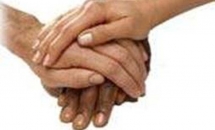Freethinking was one of the most important political and social movements in Europe in the period 1860-1914. Catalan freethinking was not unconnected with the humanitarian sensibility, though based on presuppositions of its own. It espoused a militant pacifism, just like other groups (such as the Quakers), but its main objective went beyond that; it concerned the liberating of humanity from the oppression of the religious yoke. It was a mission that was simultaneously ethical and political: a space had to be created that would enable the full deployment of an autonomous human morality that was radically separate from the mandates of the positivist religions. It was imperative that people should give up the beliefs that they saw as the keystone of the existing social and political order.
This particular concept of humanitarianism concerned, in part, an attempt to create an entire socialised opposition based on the elaboration of alternative rituals for everything concerning life and death and, especially, on the founding of rationalist, secular schools. This enormous challenge required a new script: a materialist cosmo-view different from the one based on the story of the Bible. A cosmo-view organised around a particular interpretation of evolutionism and thermodynamics.
Cycle: Humanitarism, Science and Medicine, in Peace and War
Organized by: Research Area of the IMF titled "Cultural practices, knowledge and heritage in urban spaces: music, science, medicine", within the framework of the research projects funded by the Government Department of Research
